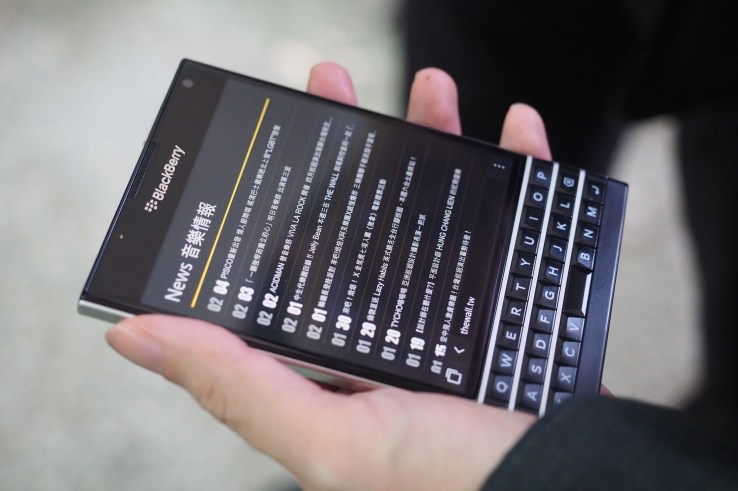
BlackBerry pulled a surprise move this morning when it announced that it’s purchasing mobile device management vendor Good Technology for $425 million in cash.
It signals that BlackBerry, which has lost most of its worldwide handset marketshare, is shifting its focus by expanding its mobile enterprise security platform.
In a way, this shift makes sense, as BlackBerry has always been about delivering secure mobile solutions. It’s easy to forget now that BlackBerry was once the undisputed leader in enterprise mobility, but when Apple and Android came along, BlackBerry quickly lost its dominant position.
To give you a sense of how far it has fallen, according comScore, in September, 2009 BlackBerry led US mobile marketshare with more than 42 percent. In the most recent report from July, it had plunged to 1.5 percent. Clearly, it’s not going to be a player in the handset market.
Although it may seem like this move comes out of the blue, in a company blog post, BlackBerry COO Marty Beard said it was really just a logical extension of BlackBerry’s existing strategy to expand into enterprise mobility across platforms.
“But when you look more closely, you see that we share a common heritage in security and our strengths complement each other incredibly well,” Beard wrote.
CEO John Chen said in a press conference that the two companies fit well together, especially given that Good’s strength is in iOS, where BlackBerry is not as strong.
Chen also pointed out that the company wants to switch to a subscription business, and the vast majority of Good’s revenue comes from subscriptions, giving Blackberry an existing platform to make this transition.
He indicated that the purchase was part of a broader acquisitions strategy as it tries pivoting to an enterprise mobile security platform. BlackBerry bought German voice encryption firm Secusmart last year. It snagged WatchDox, an enterprise file security company, back in April.
Good Technology filed an S1 in May of 2014, but it never pulled the trigger on the IPO. There were rumors of layoffs and the S1 shows substantial debt of over $24 million.
R Ray Wang, founder at Constellation Research, says that while that debt ultimately hurt the company, it has some of the “best enterprise mobility management” products on the market.
It’s not just a pure mobility play, however as both companies have also begun focusing on Internet of Things technology.
Wang said that this was a smart move for BlackBerry, enabling it go cross-platform into iOS and Android. “The result is a powerhouse EMM offering with 70+ security certificates, but the real gold here is the ability to get to a platform to support Internet of Things,” he said.
But one industry insider saw it differently with two struggling companies that might just work better together. “These are both embattled firms that are trying to stay relevant in this day and age of mobile management,” the insider said.
Overall, this looks like it could be a good deal for both companies, giving Good Technologies a soft landing without having to risk the dangers of IPOing in an increasingly hostile market, while filling out BlackBerry’s growing security platform without putting out a huge amount of cash.

Comments
Post a Comment